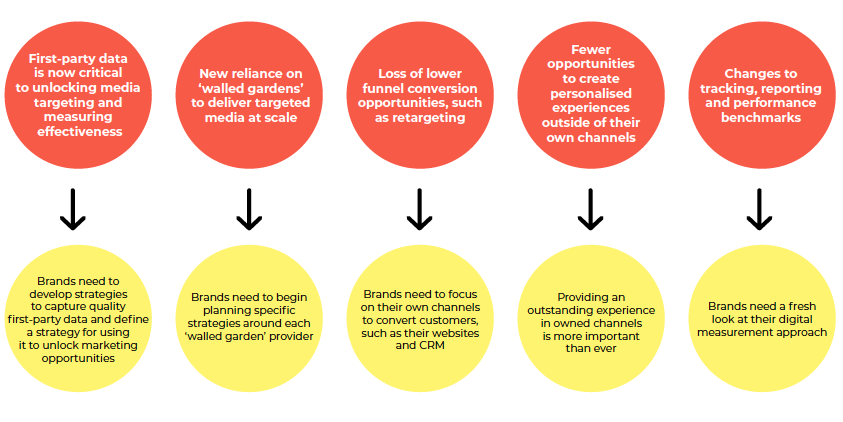The demise of the third-party cookie
A cookieless future?
How are cookies currently used?
Cookies are crucial to a brand’s ability to target, reach and personalise content to an online audience. They’re also important for the success measurement of digital media and channels. For example:
- Tracking individual’s journeys across websites.
- Targeting online audiences for digital advertising, specifically finding new audiences
- Delivering personalisation in online advertising
- Capturing data on user behaviours for use in measurement and reporting
What is changing?
Third-party cookies are being phased out of web browsers. Safari and Firefox have already removed them, and Chrome, which represents 60% of all web traffic, will do the same at the end of 2021.
Why should brands care about this?
The decline of third-party cookies will give consumers more control over the data they share with brands online.
Data privacy is key issue for third-party cookies – users have no visibility over which companies are processing their data beyond the websites that they visit. This can lead to hyper-targeted and persistent messages by unknown – and sometimes disreputable – organisations, which can be seen as invasive rather than helpful and interesting.
The new Privacy and Electronic Communications Regulations (PECR) are also honing- in on the use of cookies, which some brands (particularly financial services brands) are strictly clamping down on. PECR isn’t prohibiting cookies, but it does require brands to inform consumers about the way information is stored on their device and how the data is being used.
This is a summary of a report written by Ross Hawks, Head of Data at OLIVER. You can download the full report here.
Five key impacts that brands should be thinking about
These are the five key impacts that brands should be thinking about. In the full report we break this down into a recommended three-phase marketing approach as well as a detailed action plan for your own implementation.




